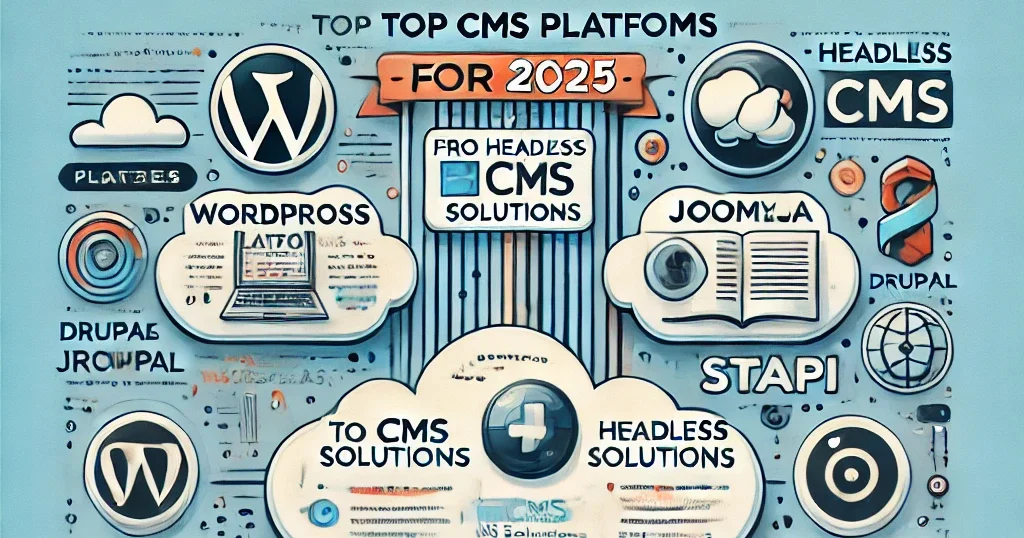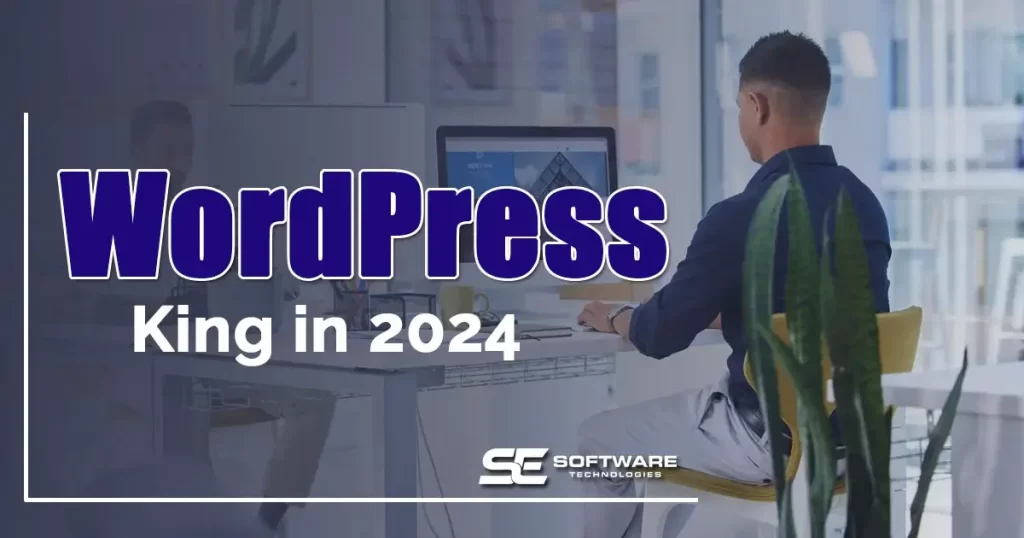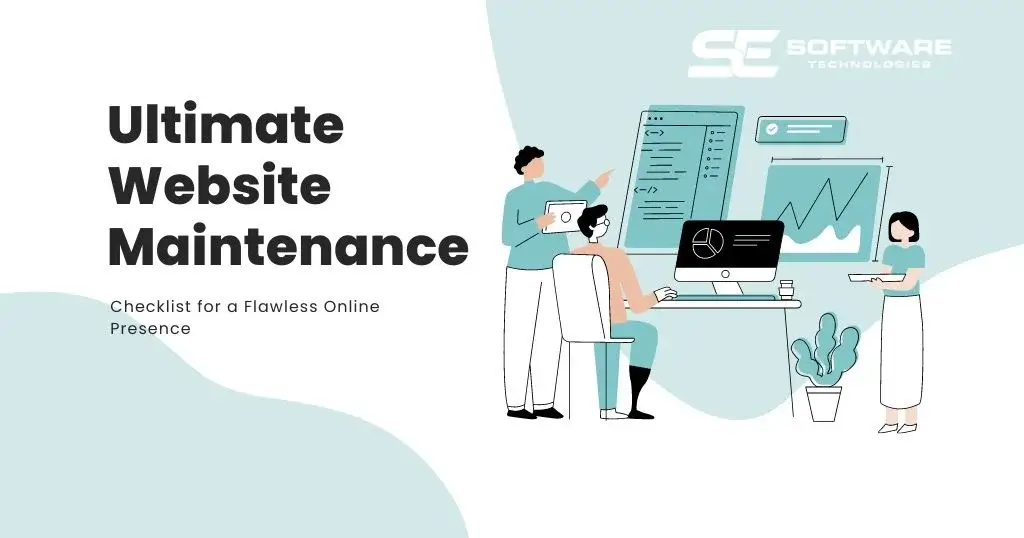As digital landscapes evolve, content management systems (CMS) have become the backbon of web publishing and digital experience management. In 2025, businesses and developers are looking for more flexibility, security, and performance, and CMS platforms are stepping up to meet these demands. Here’s a look at some of the top CMS platforms, from the enduring giants to cutting-edge headless solutions.
1. WordPress
WordPress remains the world’s most popular CMS in 2025, powering nearly 40% of websites globally. Known for its flexibility, WordPress offers thousands of themes and plugins that allow both individuals and enterprises to build customized websites without extensive coding.
WordPress’s vast ecosystem includes solutions for e-commerce (Woo Commerce), SEO, and multimedia content, making it ideal for bloggers, small businesses, and even larger enterprises.
WordPress is embracing more modern features, such as the REST API and Gutenberg block editor, to improve usability and customization. While WordPress open-source nature provides immense flexibility, its security vulnerabilities and reliance on plugins may necessitate
additional security measures for high-traffic or sensitive sites.
2. Joomla
Joomla remains a strong contender for businesses needing a robust CMS with a steeper learning curve but higher customization capabilities. It appeals to more technical users and offers powerful management tools, multilingual support, and extensive extensions. Joomla’s
flexibility makes it suitable for building complex websites or portals, although it may not be as beginner-friendly as WordPress.
3. Drupal
Drupal is a go-to for enterprise-level websites and applications requiring extensive customization and complex data structures. Known for its security and flexibility, Drupal powers government sites, large corporations, and academic institutions. The platform scalability allows developers to manage complex content types, taxonomies, and users, making it ideal for data-heavy applications. However, Drupal requires a significant level of expertise and its technical demands mean it may be better suited to experienced developers and organizations with dedicated resources.
4. Shopify
As e-commerce continues to soar, Shopify remains a top choice for online retailers in 2025. Shopify offers an easy-to-use platform with robust e-commerce features, from inventory management to payment processing. Its app store allows users to add functionalities like email marketing, customer analytics, and multi-channel selling. Shopify’s security, 24/7 support, and scalability make it popular among small to medium-sized businesses, although larger enterprises may prefer Shopify Plus, the platform’s enterprise-grade solution.
5. Magento (Adobe Commerce)
Magento, rebranded as Adobe Commerce, is another heavyweight in the e-commerce space. Known for its flexibility and scalability, Magento is highly customizable and perfect for businesses looking to create unique online shopping experiences. Adobe Commerce offers advanced analytics, personalization features, and seamless integration with Adobe’s suite of tools, making it a robust solution for enterprise e-commerce sites. While powerful, Magento requires technical knowledge, often necessitating a dedicated development team for
management and optimization.
6. Headless CMS Solutions
Headless CMS platforms like Contentful, Strapi, and Sanity are gaining traction as businesses prioritize fast, dynamic, and omnichannel content delivery. Unlike traditional CMS,headless CMS decouples the front-end and back-end, allowing developers to manage and deliver content across multiple channels (web, mobile, IoT) using APIs. Headless CMS platforms offer unmatched flexibility, ideal for complex digital experiences where content needs to be shared seamlessly across devices and applications. Headless solutions provide the freedom to use preferred front-end technologies (such as React,Vue, or Angular) while maintaining structured and reusable content. The headless approach is beneficial for brands focused on user experience, and as it becomes more mainstream, its role in digital transformation strategies is likely to grow.
7. Hub Spot CMS Hub
Hub Spot CMS Hub is designed for businesses focused on inbound marketing and offers an all-in-one solution that combines CMS with marketing, sales, and service tools. Its user-friendly interface, built-in SEO tools, and integration with CRM make it ideal for businesses focused on customer acquisition and retention. HubSpot CMS is a popular choice for small to mid-sized businesses aiming to leverage inbound marketing tactics to attract and convert visitors.
8. Ghost
Ghost is a streamlined CMS platform focused on professional publishing. Known for its clean interface and SEO optimization, Ghost appeals to bloggers and content-heavy sites. It offers a subscription and membership model out-of-the-box, ideal for those looking to monetize content. Ghost is powered by Node.js, making it faster and more lightweight than traditional CMS platforms, although its minimalistic approach may limit customization options.
Conclusion
Each CMS platform has unique strengths and is suited to different business needs. Whether you’re a developer looking for flexibility, a retailer aiming to scale e-commerce operations, or an enterprise needing a secure, customized solution, the CMS landscape in 2025 offers diverse options to build a powerful digital presence. With the rise of headless CMS and modular approaches, businesses are empowered to create seamless, multi-channel experiences that align with today’s digital demands.





